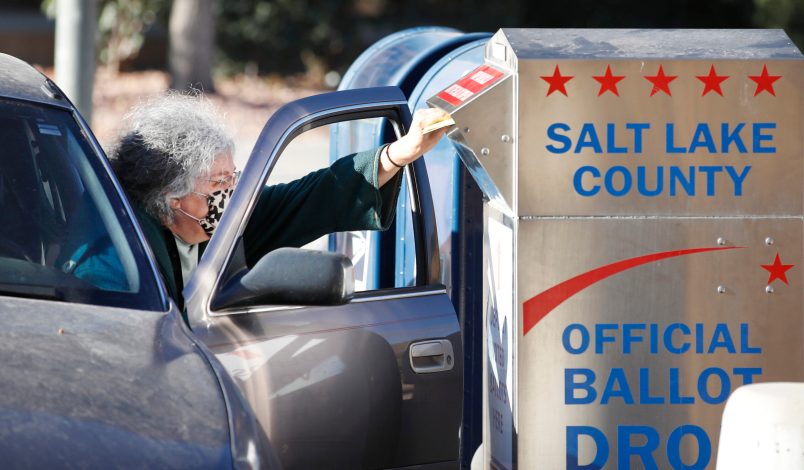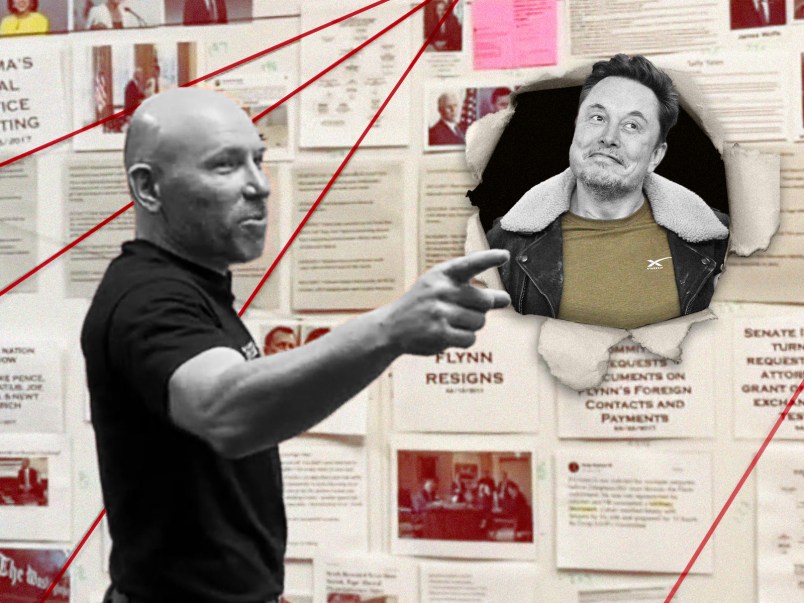As state legislators across the country continue to push for so-called “audits” and other investigations into the 2020 election, some independent groups are taking it upon themselves to hit the pavement — going door-to-door and asking people about their vote in the last presidential election.
The Salt Lake Tribune has the latest out of Utah, where a group calling itself the “Utah Voter Verification Project” (UVVP) is knocking on doors in search of non-existent evidence of widespread election irregularities. Complaints lodged with the state noted that the canvassers did not wear name tags and refused to identify themselves.
And a handbook for the group published by the paper instructs volunteers not to wear any specifically political clothing — “please look and act as ‘Team America’” — and tells volunteers, correctly, that Utah law allows them to record their conversations without the consent of any other party.
It also notes, “Voter Verification will be presented as evidence, both in and out of legal settings.”
The handbook’s FAQ section includes what to say if asked about the nature or purpose of the canvassing organization: “We are grassroots, volunteer, citizen-led, non-partisan advocates for election integrity.”
The goal is, reportedly, to produce an evidence trail: Affidavits or recordings reflecting “discrepancies” in the election tally that can be used to prop up theories about election fraud.
And the group is, by now, following a well-worn plan.
In Arizona, after the so-called auditors ditched their own plans for a door-to-door canvass following a warning from the Justice Department, right-wing activists pursued their own independent canvassing operation. A report on the effort published by onetime state legislature candidate Liz Harris made wild claims about election shenanigans — but included no evidence supporting them. A draft of the Arizona “audit” final report noted that auditors “integrated” Harris’ report into their own.
Separately, there were isolated reports of Pennsylvanian members of an “Election Integrity Committee” knocking on doors over the summer.
The efforts are gathering volunteers online and on the messaging app Telegram, where Twitter user Trapezoid of Discovery recently flagged groups seemingly dedicated to canvasses across several states.
“This is not unique to UT,” wrote Matthew Masterson, the former head of election security at the Cybersecurity Infrastructure Agency, which is housed within the Department of Homeland Security, said of the Tribune report.
“It’s happening across the country,” Masterson said. “It’s dangerous. People are harassing neighbors and friends in pursuit of lies they have been told by a bunch of grifters making a living off damaging American democracy.”
One person leading the Utah effort, Elaine Moore, posted online that the Colorado-based group U.S. Election Integrity Project (USEIP) was handling background checks for UVVP, the Tribune reported.
That Colorado canvassing group, according to an August handbook reported by the Colorado Times Recorder, expanded their own volunteer vetting process after learning that a couple volunteers “had a criminal history of sexual misconduct.”
USEIP and UVVP also have ties to Mike Lindell, the MyPillow CEO who’s spent millions of dollars pushing nonsensical claims of election shenanigans. Multiple members of the Colorado group are now leading a Lindell-funded effort called Cause of America. And the Tribune noted that Moore produced several videos for a recent Lindell “Thank-a-thon” event.
The canvassing efforts provide a challenge for election authorities: Unless canvassers are violating voters’ civil rights, they are free to go door-to-door asking about voting histories.
“It’s creepy,” Lt. Gov. Deidre Henderson (R), who oversees the state’s elections, told the Tribune. “I hope people don’t answer these questions. But unless they’re doing something like targeting protected groups of people, there’s not much I can do.”










